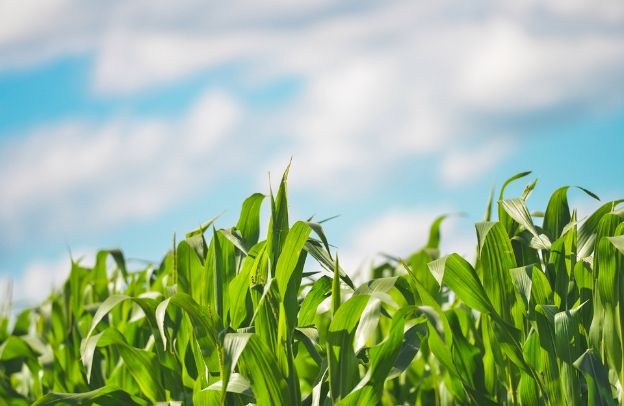The Nigerian Agricultural and Agribusiness Potential: A Golden Opportunity for the African Diaspora

Have you ever imagined a world where the African diaspora plays a pivotal role in solving global food insecurity, creating thousands of jobs, and transforming the economy of a nation? Can you see yourself as part of a movement that turns Nigeria’s vast agricultural potential into a global powerhouse of food production and innovation?
Learn How to Leverage Your Story through our Story To Asset Transformation (S.A.T) Framework.
Nigeria, with its fertile soil and an agricultural heritage that spans generations, is a sleeping giant waiting to be awakened.
For African diaspora entrepreneurs, the opportunities in Nigeria’s agricultural sector are not just about profits, they’re about purpose. They’re about creating sustainable solutions to feed millions, uplifting rural communities, and cementing Africa’s position as a critical player in global agribusiness.
Today, as food insecurity worsens globally, affecting over 735 million people as of 2022, according to the United Nations, the importance of agriculture has never been more pressing.
For the African diaspora, the time to act is now. Here’s why Nigeria’s agricultural sector, specifically maize production, holds the key to unlocking both economic growth and food security.
(Join AClasses Academy today and learn how to turn Africa’s agricultural potential into your entrepreneurial success story)
The Role of Agriculture in Nigeria: An Economic Backbone
Agriculture remains the bedrock of Nigeria’s economy, contributing approximately 25% to the GDP and employing over 70% of the rural workforce (World Bank, 2022).
This isn’t just an economic statistic; it’s a lifeline for millions of families. With over 84 million hectares of arable land, Nigeria has the capacity to feed itself, and the world.
Maize, often called the “king of cereals,” is one of the most significant crops in this equation. It’s versatile, affordable, and indispensable for human consumption, livestock feed, and industrial use.
Nigeria is the largest producer of maize in Africa, contributing over 10.6 million metric tons annually. Yet, despite this impressive output, the country’s potential remains underutilized due to post-harvest losses, outdated farming practices, and limited investment in value addition.
The African Diaspora: A Catalyst for Agricultural Transformation
The African diaspora is already a critical economic driver for the continent, sending over $53 billion in remittances annually (World Bank, 2022).
But remittances alone are not enough to unlock Nigeria’s agricultural potential. What’s needed is strategic investment in agribusiness, particularly in areas like mechanized farming, post-harvest technology, and processing plants.
Imagine using your resources to establish a maize processing facility in Nigeria, turning raw maize into high-demand products like gluten-free flour, animal feed, or biofuel.
Not only would this create jobs, but it would also significantly reduce post-harvest losses, which currently stand at a staggering 11.7% (ResearchGate, 2023).
See also: Feeding Africa: The Power of Maize-Based Livestock Feed in Agribusiness
Maize: The Goldmine Crop of Nigeria
As a diaspora entrepreneur, maize offers you a unique opportunity to tap into a value chain with limitless potential.
Half of Nigeria’s maize production is used for livestock feed, making it a staple for poultry and fish farming, two booming sectors in the country.
Additionally, maize is a key ingredient in industrial products like baby formula, baked goods, and even biodegradable plastics.
The demand for maize isn’t just local; it’s global. Countries like the United States, China, and Mexico have built billion-dollar economies around maize production. Nigeria has the same potential but lacks the infrastructure to fully capitalize on it.
By investing in mechanized farming or export-oriented maize processing, you can help Nigeria bridge this gap and compete on a global scale.
Health Benefits of Maize
Beyond its economic value, maize is a nutritional powerhouse. Rich in Vitamin A, B-complex vitamins, potassium, and dietary fiber, it supports immune health, improves eyesight, and aids digestion.
For children, maize is crucial in combating malnutrition, a challenge that affects over 25 million Nigerians annually.
Research also shows that colorful maize varieties (purple, red, blue) contain powerful antioxidants like lutein and zeaxanthin, which prevent chronic diseases like cataracts and Alzheimer’s.
By promoting the cultivation and consumption of these nutrient-dense varieties, you can contribute to improving public health while boosting farmer incomes.
Challenges Facing Nigeria’s Agriculture and How the Diaspora Can Help
One of the most significant challenges in Nigeria’s agricultural sector is post-harvest losses.
According to a detailed study published on ResearchGate, maize ranks as the third most important cereal and staple crop globally.
However, in Nigeria, poor agricultural policies and inadequate funding remain significant barriers to the sector’s growth and efficiency. This research focused on analyzing post-harvest losses in the maize value chain by identifying their causes and sources using the Commodity Systems Assessment Methodology (CSAM).
This methodology encompasses 26 components, structured interviews, and protocols for measuring quantitative, qualitative, and economic losses.
The study collected data on marketing, storage, handling, production, and pre-production activities through a combination of interviews, observations, physical measurements, and literature reviews.
Findings revealed that cultural practices for maize production vary widely across regions in Nigeria, directly influencing the crop’s quality and yield.
Poor-quality seeds and inadequate fertilization practices were identified as critical factors negatively impacting the final quality of harvested maize.
Farmers typically sun-dry maize on farms before selling it, with cob size and quality influencing farm gate prices.
Unfortunately, many farmers remain unaware of the extent of post-harvest losses, as they do not sort harvested crops before sale.
Factors contributing to losses at the farm level include production constraints, improper drying, the absence of grading systems, and inadequate storage facilities.
The study quantified post-harvest losses at the farm level to be 13%. Additionally, mechanical damage during handling and transportation accounted for an additional 2-3.5% of losses.
Overall, an average loss of 15% was recorded throughout the maize value chain. This highlights the urgent need for improved practices, investments in infrastructure, and targeted policies to minimize losses and maximize the economic potential of maize production in Nigeria.
Access to Finance and Technology
Smallholder farmers, who produce over 80% of Nigeria’s maize, often lack access to affordable credit and modern farming equipment. This limits their productivity and keeps them trapped in a cycle of poverty.
By partnering with local cooperatives or NGOs, you can provide farmers with the tools and training they need to succeed. Initiatives like micro-loans or shared farming equipment can make a world of difference.
See also: Best Financing Strategies For Small And Medium-Scale Farmers: What You Need To Know
Opportunities for African Diaspora Entrepreneurs
The maize value chain in Nigeria offers countless opportunities for investment:
- Processing Plants: Convert raw maize into high-value products like flour, starch, and ethanol.
- Export Ventures: Tap into regional and international markets for maize-based products.
- Agri-Tech Startups: Develop mobile apps or platforms that connect farmers with buyers, provide weather forecasts, or offer farming tips.
According to an article by the Food and Agriculture Organization (FAO), the Hand-in-Hand Initiative has been actively collaborating with the Nigerian government to address critical agricultural challenges by focusing on two key pillars: livelihood resilience and value chain development.
The livelihood resilience pillar is designed to strengthen, sustain, and improve the livelihoods of rural communities, enabling them to better withstand economic and environmental shocks. Its goals include ensuring sustainable access to food, fostering income diversification, and promoting climate-smart agricultural practices.
By prioritizing these areas, the initiative seeks to empower farmers and agricultural workers with the tools and resources needed to adapt to changing climate conditions, enhance productivity, and create long-term sustainability for Nigeria’s agricultural sector.
This partnership underscores the importance of resilience in agriculture and demonstrates how strategic global collaboration can drive impactful, localized solutions for food security and economic growth.
Creating Sustainable Jobs
By investing in agriculture, you’re not just making a profit, you’re creating jobs. Nigeria’s youth unemployment rate stands at a staggering 33.3% (NBS, 2022).
Agribusiness ventures can provide meaningful employment for thousands, from farm laborers to factory workers to tech developers.
Success Stories: Diaspora-Led Agricultural Initiatives
The African diaspora has already made strides in transforming agriculture on the continent. Organizations like Shamba Pride in Kenya and Farmcrowdy in Nigeria are excellent examples of how technology and investment can revolutionize farming.
Farmcrowdy, for instance, uses a digital platform to connect investors with smallholder farmers, providing funding and resources in exchange for a share of the profits.
These success stories prove that with the right strategy, diaspora-led initiatives can be both impactful and profitable.
Conclusion: Seize the Moment
The agricultural potential of Nigeria is immense, but it requires visionary entrepreneurs like you to unlock it.
By investing in maize production and its value chain, you’re not just building a business; you’re building a legacy. You’re feeding families, creating jobs, and strengthening communities.
As global food insecurity continues to rise, the world needs innovative solutions, and Nigeria’s agricultural sector holds many of the answers.
The question is: Will you step up to the challenge and be part of the change?
The time to act is now. Your investment in Nigeria’s agriculture could be the spark that transforms not only a nation but an entire continent.
Learn How to Leverage Your Story through our Story To Asset Transformation (S.A.T) Framework.




